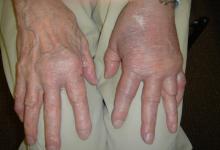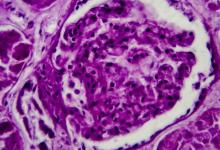A Card-Carrying Optimist Save

I may be a snarky, opinionated curmudgeon, but I'm an optimist when and where it counts. And I think you should join me.
Adversity is the challenge I rise against to find workable solutions. Because of my optimism, I look forward to what’s next.
Optimism isn't wishful dice-rolling, magical thinking, or pie-eyed aspirations.
Optimism is defined as expecting the best possible outcome from any given situation. Optimism is a state of mind that wills and encourages the positive.
All of us will be confronted with vile, futile, and hostile challenges. These outcomes may be certain, but our choices and actions need not be. Hence, optimism is the will to come up with workable, favorable solutions, while avoiding the abhorrent.
Daily we aim for internal satisfaction, while the external world challenges us with adversity and uncertainty. You cope with willful choices that certify you as an optimist, pessimist, or realist. We optimists see or seek the upside, while the pessimist clings to the downside and realists live in the now (carpe diem pragmatists).
Doctors assess, diagnose, and treat, but optimal care can be facilitated by the physician who inspires and motivates. Bestowing your optimism unto others can have powerful, life-changing effects. Patient optimism leads to healthier behaviors, greater physical functioning, living longer, less pain, fatigue, and depression. Optimism between physician and patient leads to better communication, engagement, motivation, and trust. Optimists have greater job satisfaction and overall life satisfaction.
Physicians need optimism to bolster their purpose, resilience, enthusiasm, and fulfillment in their personal and professional lives.
- Optimism is more than half full, aims ahead of the pack and climbs when there is no ladder.
- Optimism seeks enthusiasm, efficiency, productivity as its reward (while pessimism is resigned to the fickle finger of fate).
- When faced with that which is harsh, you must choose: sulk, ponder or move forward. Optimism is actionable.
- While humans pay more attention to the negative (i.e., news), they are more likely to be empowered and motivated by the positive.
- Research shows that as we age, we become more optimistic, even when faced with adversity. Most ascribe to the “life is short” mantra; with optimism guiding us to happiness and emotional balance.
- Education and learning generate options and optimism. Those who don’t learn are without.
- Think about the “stories we tell ourselves” – they help or hinder us. Opting for the positive narrative can yield hope, generosity, and power.
- Uncertainty can be worrisome. When uncertainty lies ahead, optimism and preparation are your best navigators.
The disadvantaged patient wants your honesty, guidance, and opinion. But they really need to know that you have their back; that you care and show you care. This is the kind of optimism that your patients deserve, especially those dealing with extraordinary challenges.
In Latin, “optimum” means "best". Little did I know that my ongoing quest for optimism is really about being my better self.
Best Optimism Quotes:
"A pessimist sees the difficulty in every opportunity; an optimist sees the opportunity in every difficulty." – Sir Winston Churchill.
“Optimism is the faith that leads to achievement.” – Helen Keller
“Perpetual optimism is a force multiplier.” - Colin Powell
“Optimism is the madness of insisting that all is well when we are miserable.” - Voltaire
“Pessimism leads to weakness, optimism to power.” - William James
“My optimism wears heavy boots and is loud.” - Henry Rollins
Join The Discussion
definition of a pessimist-- someone joins a dating service and signs up for lifetime membership
Great article..







If you are a health practitioner, you may Login/Register to comment.
Due to the nature of these comment forums, only health practitioners are allowed to comment at this time.